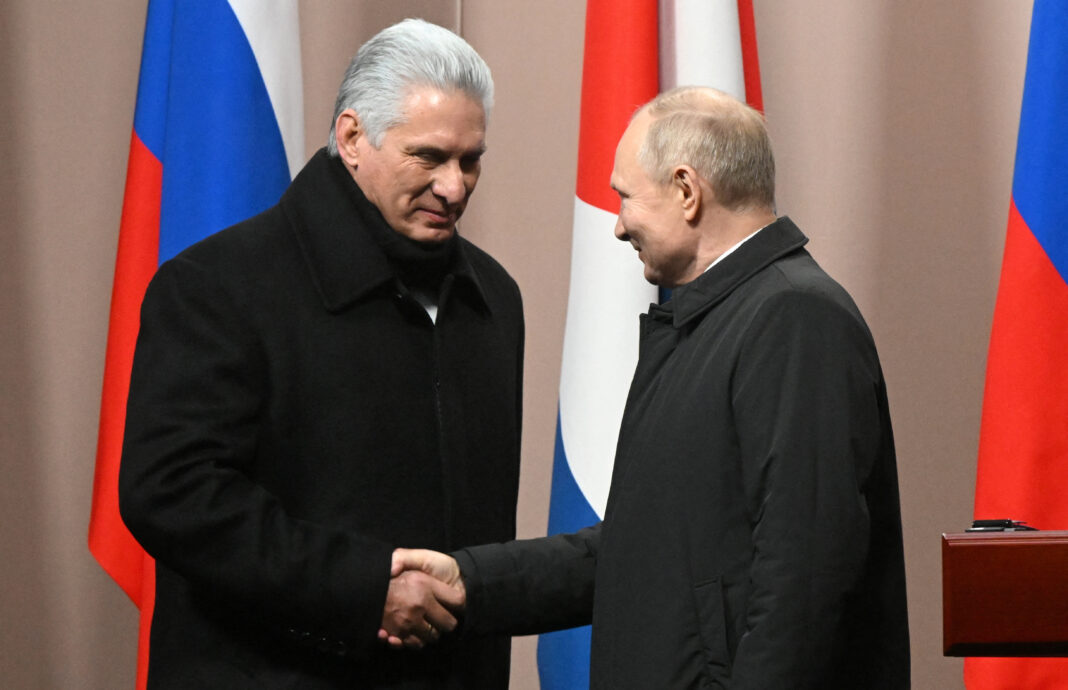The embargo against Cuba has now been lasting for 62 years, it has now become a matter of principles whose ultimate victims are simply the Cuban people.
A proof of the stubbornness of the USA to let go of their desire of ideological dominance over their area of influence, even when it comes with great cost for the population of the country they have targeted.
The bloqueo was first imposed in 1960, as a response to the revolution led by Fidel Castro, and ever since, the USA have been able to get on board also several of their international allies, by imposing pressures and sanctions on international firms with big interests in their territory to discourage them from also trading with the small Caribbean Island.
The situation seemed to be eased with the Obama administration, as in 2016 there were some steps that seemed to be leading to a reconciliation, with the president being involved in an historic visit of Havana. Nevertheless, all these efforts were scrapped by President Trump, who chose a more hardline approach that led to further separation between the two countries.
As the democrats got to power in 2021, there was hope that there would have been more efforts to restore the relations with Cuba, especially considering that President Biden had served as vice-president under Obama. However, these hopes now seem to have been misplaced, as the relationship with the island seems to have slipped off the priorities of the political agenda. In fact, Biden has not taken any significant steps to set himself apart from his predecessor, his only provision on the matter has been relaxing restrictions on remittances and flights to Cuba.
The US have justified their ongoing pressures to Cuba by arguing that the government is enacting human rights violations, for instance, cracking down on protesting crowds the summer of 2021. In this occasion, Cuba has in fact arrested 400 people, but all accusations of human rights violations have been dismissed.
Shifting the focus to the other side of the story, the island has suffered great damages to a wide variety of sectors including the agricultural, educational and transports. According to foreign minister Rodriguez, only during the Biden administration the embargo has cost the Cuban economy about 6.35 billion dollars.
One of the sectors that has most been affected is the one of healthcare, a situation that has further been worsened by the burden of the pandemic, which has been challenging to carry for a healthcare system that has been struggling for years to provide patients even with the most basic treatments, due to the impossibility of importing any form of medicine or sanitary equipment.
Lately, further tensions have emerged due to a collision of problematic event which has put the island in a even more delicate economic situation. Aside from the struggles that the whole global economy has been facing, such as those related to the increase in the energy prices and the aftermath of the pandemic, Cuba is being put through its paces by an agricultural crisis caused by adverse meteorological conditions, such as longer droughts, warmer water, more intense storms, and higher sea levels. For a long time, agriculture had been a bright spot in the island’s struggling economy.
The crisis of this sector, associated with difficult life conditions, has caused an exodus of people trying to reach the USA. Hence, further tensions have emerged due to the pressing issue of migrations. In fact, only this year, around 221.000 have been found trying to enter the USA through the Mexican border.
Surely, the situation is of the utmost intricacy, as both parts involved have their rights and wrongs. However, the measure of the embargo is considered unsustainable, an opinion shared by almost the whole international community. In fact, ever since 1992 the United Nations have been advocating for the lift of the embargo.
The third of November 2022, the UN General Assembly has passed its thirtieth resolution rebuking the embargo, with 185 countries in favor, two abstentions from Brazil and Ukraine and only two opposed, namely the US and Israel.
John Kelley, the US Political Coordinator, has claimed that the US will stand with the Cuban people and still try to support them, even though they do not agree with the resolution passed. These claims have been countered by the prompt response of Yuri Gala, Cuba’s deputy representative at the UN, who has argued that lifting the bloqueo would be enough to cause great improvement in the Cuban welfare, if that were what the US truly wanted.
In light of the situation depicted so far, the importance of lifting the embargo is shown in all its clarity. 11.5 million people live in Cuba and suffer in their daily life the consequences of this decades-long embargo that has affected their quality of life for the worst. What started as a political move in a time of great international divide, when there was a need to demonstrate ideological resolve, has now become a matter of principles whose ultimate victims are simply the Cuban people. Improvement in the diplomatic relations hence appears as a necessity to finally solve a collision that has been going on for decades.
The embargo against Cuba has now been lasting for 62 years, it has now become a matter of principles whose ultimate victims are simply the Cuban people.




